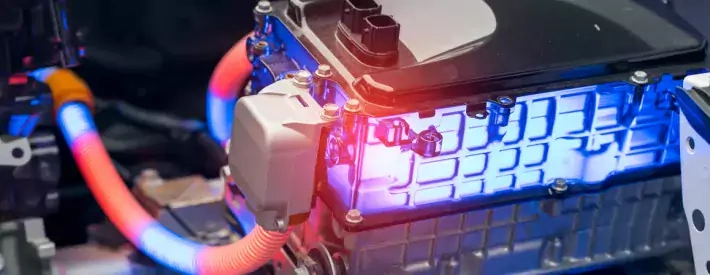The road to getting automotive EV-trained

As the sector propels itself into the era of EVs, the spotlight continues to fall on whether we have the skills to meet future demands. It’s an issue the IMI is keen to tackle and is constantly assessing the challenges and solutions surrounding EV Technicians.
To succeed in an EV world, learners need three things: a provider for academic instruction, a workplace for hands-on training, and funding. But it doesn’t stop there, a commitment to a minimum 2-year course requires the learner to have essential personal protective equipment and a hand tool kit.
Money talks in the EV age. Initial training and tooling amount to around £2,500 to become EV ready. But when you factor in the productivity losses, the price tag swells to nearly £5,000. And the investment doesn't stop there; CPD and experiential learning further add to the tally.
More than money
However, the challenge isn't just financial. IMI research reveals a significant proportion of the Technician community thrives as kinaesthetic learners – they learn through doing. Moreover, there's a marked neurodiversity in this population, necessitating that training programmes are tailored to cater to varied needs. Hence, a one-size-fits-all approach to upskilling will not suffice.
Furthermore, the training isn't solely about getting technicians EV-ready. It's also about ensuring they're prepared for the broader technological spectrum that defines modern vehicles. Areas like digital integration, air conditioning, and Advanced Driver Assistance Systems are integral to a Technician's repertoire. The cost and time implications for career switchers are even more significant. They may need an investment comparable to post-16 education, meaning about six years before they are fully prepped for the EV domain.
Interestingly, while EVs are the primary focal point, they aren't the only players on the field. Hydrogen technology is lurking on the horizon. Although its current numbers remain small, the industry should be prepared for its potential mainstream inclusion.
Complicating the narrative further is the UK Parliament’s Environment and Climate Change Committee's ongoing inquiry into EVs. This probe is causing a ripple effect, sowing seeds of doubt in the minds of potential Technicians. Such uncertainty could hinder their willingness to invest in training, fearing an inadequate return on investment.
And then there's the tangible road safety angle. Recent data points to a worrying trend: EVs are more likely to fail their first MOT compared to their petrol counterparts. As EVs grow in number, this trend could adversely impact road safety, posing risks, especially to vulnerable road users.
But among these challenges lie opportunities. The IMI and its partners are taking the initiative to bridge the skills gap, paving the way for a brighter, electric future. The industry's stakeholders, from training providers to manufacturers, must come together in this endeavour. Upskilling the workforce is not just a necessity but an imperative for an industry on the cusp of transformation.
Leading from the front
The UK government has a pivotal role to play in addressing the EV skills gap. To facilitate the upskilling of vehicle Technicians, it's imperative that a robust and targeted strategy is formulated. This could include increased financial incentives for Technicians and training providers, aimed at reducing the upfront costs of EV-specific courses. Collaboration with industry leaders can help design a curriculum that is both contemporary and forward-looking. Furthermore, the creation of public-private partnerships could ensure a steady stream of placements, enabling hands-on learning.
By integrating these efforts with broader EV adoption schemes, such as tax breaks for electric car owners or infrastructure development for EV charging, the government can not only foster a skilled workforce ready for tomorrow's challenges but also accelerate the nation's transition to a greener future.
Government assistance could include:
- Alignment of VAT for domestic and public charging
- Reduction of VAT for training and equipment that contribute to net zero
- Reinstate the Super Deduction for capital investments that contribute to net zero
- Implement financial assistance delivered through payroll reporting to SME’s with apprentices
- Increase the funding bands for post-16 education within automotive skills
- Work with industry to promote motor industry careers
- Clear guidance on how to claim costs through existing schemes as an individual who invests in tooling
As we transition into the EV era, continuous dialogue, collaborative efforts, and strategic investments will be the keys to success.
For those wishing to delve deeper into the topic, the IMI ADAS Report and EV TechSafe Technician Forecasts June 2023 offer comprehensive insights.
And if you want to start your EV learning journey, check out the range of courses on offer
Hayley Pells is Policy and Public Affairs Lead at the Institute of the Motor Industry




